How to Choose the Best Upvc Pipes for Maximum Durability and Performance
Table of Contents
- Understanding UPVC Pipes: Key Features for Longevity
- Comparing UPVC Pipe Grades: Which One Meets Your Needs?
- Assessing Pipe Diameter and Thickness for Optimal Flow Performance
- Evaluating Resistance to Environmental Factors in UPVC Pipes
- Lifecycle Costs: Analyzing UPVC Pipe Durability vs. Price
- Selecting the Right Fittings and Accessories for UPVC Networks
- Impact of Pntek High Density Polyethylene Pipes on Water Infrastructure: A Review of Industry Reports and Future Projections
- FAQS
- Conclusion
- Related Posts
Picking out the best UPVC pipes isn’t something you want to rush—trust me, it really affects how durable and reliable your plumbing or construction project will be down the line. With over a decade of experience in exporting, Ningbo Pntek Technology Co., Ltd. knows firsthand how important it is to choose the right materials. These days, UPVC pipes are super popular—they’re resistant to corrosion, don’t require a ton of maintenance, and can last for over 50 years if you take good care of them. That’s why you’ll find them used everywhere, from home plumbing systems to large industrial setups. As more folks look for top-notch plumbing solutions, understanding what makes a pipe ‘good’—the specs and quality indicators—is key. It helps ensure your system performs well and saves you from costly repairs later on.

Understanding UPVC Pipes: Key Features for Longevity
When you're choosing UPVC pipes and want them to last and perform well, it helps to know the key features that really make a difference in their longevity. UPVC — which stands for unplasticized polyvinyl chloride — is pretty popular because it’s super resistant to corrosion and chemicals. That makes it a solid pick for all sorts of plumbing jobs. One thing to look at is the pipe’s pressure rating, which basically tells you how much internal pressure it can handle without falling apart. Plus, the UV resistance of UPVC pipes is a big plus since they stay strong and keep their color even when exposed to sunlight, helping them last much longer.

Another factor that’s worth considering is how well the pipes are made. Top-quality UPVC pipes are usually produced using advanced extrusion methods that make sure their wall thickness and density stay consistent. That consistency translates to better overall performance. You know, just like how new tech in other fields—like the latest propulsion systems—are pushing the boundaries in durability and efficiency. It’s kind of the same idea: investing in better materials, like premium UPVC, can really pay off for your plumbing. It means fewer headaches down the line, fewer repairs, and peace of mind knowing your system is built to last.
Comparing UPVC Pipe Grades: Which One Meets Your Needs?
When you're choosing UPVC pipes, it’s pretty important to get a good handle on the different pipe grades. Trust me, knowing the differences can make a big difference in how well they perform and how long they last. So, the main types you’ll come across are PVC-U, PVC-M, and PVC-O — each designed for specific uses and pressure needs. PVC-U is the stiff one; it’s perfect for drainage and sewer systems because it’s super resistant to corrosion and chemicals. On the other hand, PVC-M has more impact resistance, so it’s great when you need a bit of flexibility and toughness, like in low-pressure water supply setups. Then there’s PVC-O, which is kind of a marvel. It’s made through a special orientation process that boosts its strength while keeping it lightweight thanks to thinner walls. That makes installation a breeze and means it’s built to last, especially in tough environments where failure isn’t an option. Honestly, the best choice really depends on what your project needs — whether it’s water delivery, drainage, or some industrial application. Picking the right grade means you get durability and performance, without any unnecessary worries.
Comparing UPVC Pipe Grades for Durability and Performance
This chart compares the impact resistance of different grades of UPVC pipes. Choosing the right UPVC pipe grade can significantly enhance the durability and performance of your plumbing projects.
Assessing Pipe Diameter and Thickness for Optimal Flow Performance
When you're choosing UPVC pipes for construction or plumbing jobs, it's really important to pay attention to the pipe's diameter and wall thickness. These details are key to making sure everything flows smoothly. Basically, the diameter tells you how much fluid can move through at once, while the thickness impacts how tough the pipe is and whether it can handle pressure without bursting. Picking the right combo of these things can make your system work better and last longer — which means fewer headaches and less money spent on repairs down the line.
At Ningbo Pntek Technology Co., Ltd., we totally get how important these specs are. With over 10 years of experience exporting high-quality plastic pipes and fittings, we know what it takes to keep your projects running smoothly. Our focus is on durability and performance, so you can count on our products to perform well no matter the conditions. By trusting our expertise, you’ll be able to make smarter choices that boost your project’s efficiency and help it stand the test of time.
How to Choose the Best Upvc Pipes for Maximum Durability and Performance - Assessing Pipe Diameter and Thickness for Optimal Flow Performance
| Pipe Diameter (mm) | Thickness (mm) | Pressure Rating (bar) | Flow Rate (L/min) | Typical Applications |
|---|---|---|---|---|
| 20 | 2 | 10 | 15 | Residential plumbing |
| 25 | 3 | 12 | 25 | Irrigation systems |
| 32 | 4 | 15 | 40 | Commercial plumbing |
| 40 | 5 | 16 | 60 | Industrial applications |
| 50 | 6 | 20 | 100 | Main water supply |
Evaluating Resistance to Environmental Factors in UPVC Pipes
When you're picking out UPVC pipes for stuff like durability and good performance, it’s super important to consider how well they stand up against different environmental factors. Recent research actually points out some pretty interesting issues, like tiny microplastics sneaking into water systems—something that’s not just bad for the environment but can also compromise the pipes’ integrity over time. The way water interacts with these pipes—its chemistry, flow patterns, and the materials used—can cause problems, like lead leaching into your drinking water. Getting a good grasp of these factors is key because they directly impact how safe and reliable your plumbing system is.
On top of that, the way polymer materials break down when exposed to various disinfectants is a good clue about how long UPVC pipes can really last. These pipes aren’t just dealing with the physical pressure of water flowing through; they also face chemical attacks and temperature swings, which can weaken them over time. It's also worth looking into how much lead might leach out of UPVC pipes under different conditions—this info is pretty crucial for making sure your drinking water stays safe. By paying attention to these environmental challenges and how resistant the pipes are, you can make smarter choices, picking options that are not only durable but also eco-friendly and suited for a variety of settings.
Lifecycle Costs: Analyzing UPVC Pipe Durability vs. Price
When you're choosing UPVC (Unplasticized Polyvinyl Chloride) pipes, it's really worth taking a close look at the overall costs over their lifetime. Sure, they might cost less upfront compared to options like metal or ceramic pipes, but honestly, the long-term perks often make up for it. Things like their resistance to rust and corrosion, needing less maintenance, and they tend to last quite a while—these all add up to give you better value in the long run. Getting a good grip on the durability of UPVC pipes can help you make smarter decisions and save some money down the line.
At Ningbo Pntek Technology Co., Ltd., we truly believe in choosing top-quality UPVC pipes that are built to last. We’ve got over ten years under our belt exporting plastic pipes, fittings, and valves, and we’re dedicated to providing products that not only tick all the industry boxes but also make installation easier and keep operational costs low. Our experience helps us guide our customers to pick the right UPVC solutions that fit their budget and performance needs, so they get the most out of their plumbing systems—and perhaps save a few bucks along the way.
Selecting the Right Fittings and Accessories for UPVC Networks
When you're picking out fittings and accessories for UPVC piping, it's super important to think about both compatibility and quality. You want to make sure those fittings match up with your pipes – no point in forcing something that doesn't quite fit, right? That way, you get a smooth connection and avoid leaks, which can really mess with how durable your whole system is. Using good-quality connectors, elbows, and tees can make a huge difference—they help keep the flow steady and help the system handle pressure changes without giving you trouble.

On top of that, don't overlook the smaller stuff like clamps and brackets. These guys are key to supporting your pipes and keeping everything in place over time. It’s worth taking a little time to check out reviews and stick with reputable brands—that’ll help you avoid headaches down the line and make sure your UPVC setup lasts and performs like it’s supposed to. Honestly, nailing the right fittings and accessories is pretty much the secret to getting the most out of your piping system and making sure it stays reliable for years to come.
Impact of Pntek High Density Polyethylene Pipes on Water Infrastructure: A Review of Industry Reports and Future Projections
The impact of Pntek High Density Polyethylene (HDPE) pipes on water infrastructure is becoming increasingly significant as industries look for durable and efficient solutions for water supply systems. With their non-toxic composition and excellent chemical resistance, HDPE pipes, ranging in size from 16mm to 1400mm, provide an optimal choice for urban water supply networks. Their ability to resist scaling and microbiological growth makes them particularly suitable for main conduits and buried applications, ensuring safe and clean water distribution.
Additionally, HDPE pipes are ideally suited for renovation projects that involve replacing traditional materials such as cement or iron. Their lightweight nature allows for easy installation and minimal excavation, making them a favorable option in urban areas where space is limited. The various connection methods, including socket fusion and electrofusion joints, enhance the adaptability of these pipes for different applications. Beyond water supply, HDPE is also a resilient choice for industrial material transmission and sewage discharge, demonstrating exceptional wear and corrosion resistance that can withstand challenging environments. As municipalities and industries continue to prioritize sustainability and efficiency, Pntek HDPE pipes emerge as a leading solution for the future of water infrastructure.
FAQS
: The most common grades of UPVC pipes are PVC-U, PVC-M, and PVC-O, each designed for specific applications and pressure ratings.
PVC-U pipes are known for their rigidity and are ideal for drainage and sewer systems due to their excellent resistance to corrosion and chemicals.
PVC-M pipes have added impact resistance, making them suitable for applications requiring flexibility and toughness, such as low-pressure water supply systems.
PVC-O pipes are engineered to enhance strength while reducing wall thickness, making them lightweight yet durable with easier installation and lower risk of failures.
Evaluating environmental factors is crucial as they can affect the integrity of the pipes and the safety of water systems, including challenges like lead leaching and material degradation.
The presence of microplastics in water systems can pose risks to environmental health and potentially compromise the integrity of UPVC pipes.
Yes, while UPVC pipes may have a lower initial price, their long-term benefits such as resistance to corrosion, reduced maintenance, and a longer lifespan often provide greater overall value.
Buyers can ensure they select high-quality UPVC pipes by choosing reputable manufacturers and considering the performance and longevity of the pipes in accordance with their project needs.
Factors to consider include the initial price, resistance to corrosion, maintenance needs, and lifespan, as these can all significantly impact long-term costs.
Ningbo Pntek Technology Co., Ltd. leverages its extensive experience to guide customers in selecting high-quality UPVC solutions that align with their budget and performance requirements.
Conclusion
When you're on the hunt for the best UPVC pipes for your project, it’s really important to understand what makes some pipes better than others—stuff like durability and performance. This means taking a closer look at different UPVC grades, figuring out the right pipe diameter and thickness for smooth flow, and considering how well they stand up to environmental challenges. Oh, and don’t forget to think about the long-term costs—so you can find a good balance between quality and price without breaking the bank.
Plus, picking the right fittings and accessories is super important if you want a sturdy, reliable UPVC piping system. With over a decade of exporting experience, Ningbo Pntek Technology Co., Ltd. is all about providing top-notch plastic pipes, fittings, and valves to help you find the perfect match for your needs—whether it’s about durability, performance, or both.
Related Posts
-
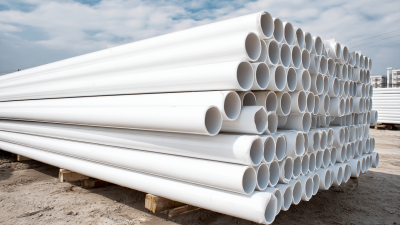
7 Essential Tips for Sourcing Upvc Pipes: What Every Global Buyer Needs to Know
-

How to Determine the Best Upvc and Cpvc Pipe Price for Your Project
-

Ultimate Guide to 2 Inch PVC Check Valves: Ensuring Optimal Flow Control and System Efficiency
-
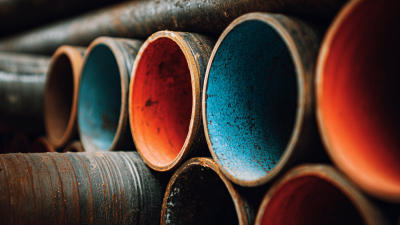
7 Essential Tips for Maximizing the Efficiency of Dipson Pipe in Your Projects
-

How to Choose the Right Upvc Ball Valve Machine for Your Production Needs
-
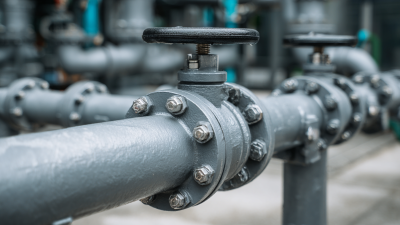
7 Essential Tips for Choosing the Best 6 PVC Ball Valves for Your Projects

Isabelle
Application

Underground pipeline
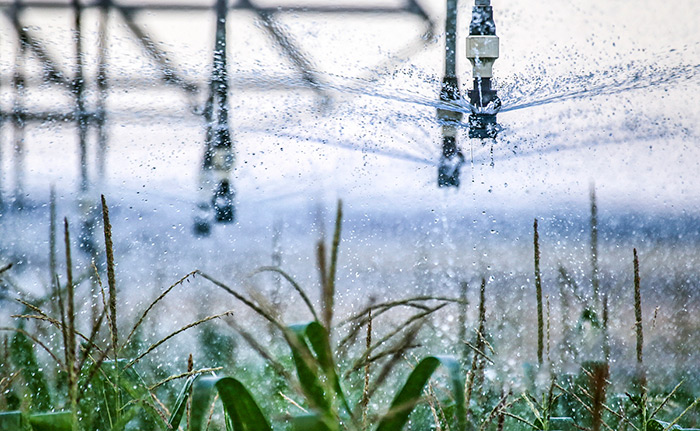
Irrigation System
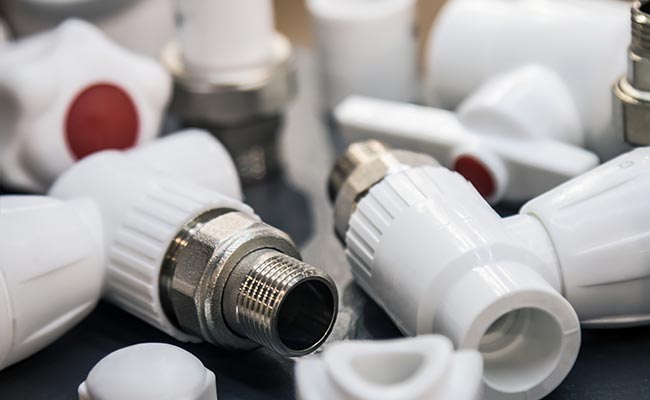
Water Supply System


